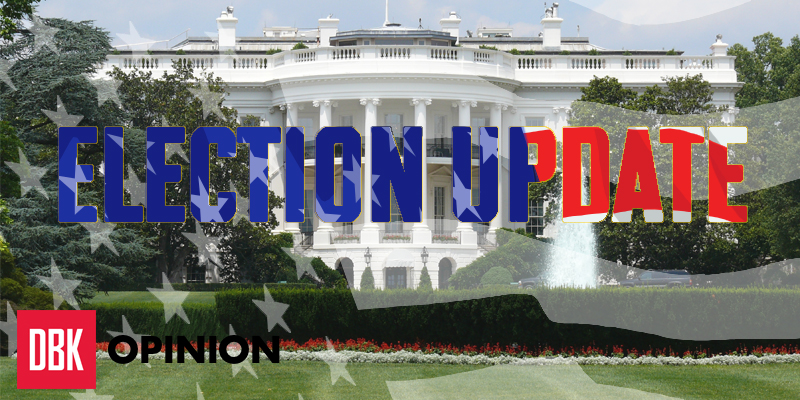With Super Tuesday (and Saturday) come and gone, each party’s remaining candidates continue to fight for delegates, and all continue to be contenders for the nomination. Through Saturday, Hillary Clinton continued to hold a strong, 210-delegate lead in Democratic delegates, not including superdelegates. Donald Trump held 391 delegates, Ted Cruz 304 delegates and Marco Rubio placed a distant third with 125. All three are far from the more than 1,200 delegates needed for a majority.
Is Clinton inevitable?
With her Super Tuesday victories, Clinton has solidified herself as the clear front-runner. Certainly the next few contests (besides Nebraska) will add to her delegate lead. The contests this weekend, sporadic ones next week and Super Tuesday II are in diverse states with critical general-election importance. More liberal states — and whiter ones where Bernie Sanders has done well — have their primary elections at the end of March. Will Clinton already be coronated by the media, party and general voters by then? Most likely.
If Sanders wants any chance of winning, he’ll have to lose these early proportional contests by thin margins and then absolutely dominate Clinton in every contest following Super Tuesday II. Contests like New York and California provide extraordinary opportunities for Sanders to rack up large numbers of delegates in liberal states. But Clinton will continue to strengthen with victories this month, and she’s already planning ahead, attacking Trump often in her stump speeches. It remains to be seen if she’ll have to refocus on Sanders.
Deciphering the Republican race
As I wrote last week, the Republican circus could continue right through the party convention in mid-July. Before that could happen though, the four candidates will compete in dozens of primaries — many of which are winner-take-all. This simple fact is critical because no candidate seems likely to win a majority of the Republican popular vote. So anyone winning even a plurality of votes in a winner-take-all state wins a huge number of delegates. It’s entirely probable that the Republican primary winner doesn’t win a majority of the popular vote. So which candidate is in best position?
Trump has the delegate lead and — more importantly — leads in national and key state polling. Because the Republican nominee needs a simple majority of delegates and only needs a plurality of votes in many states, Trump is best positioned to win. But there’s no guarantee. Cruz has won a handful of states so far and is seen as the genuine conservative in the race. He will have to win conservative Western states as he calls on the other Republican candidates to rally around him. Rubio and John Kasich are battling to be the “establishment” candidate, but each must win his home state on March 15. If not, one or both may drop and the race will become a two-horse show.
It seems likely that Trump will knock out Rubio in Florida, or at least humiliate him. Ohio will be closer, so one potential outcome might be a Kasich win and a three-way race. With Trump stuck near 40 percent support in most states, a “true conservative” and an “establishment conservative” could alternatively challenge Trump in conservative and moderate states. It’s a dangerous game for anti-Trump Republicans, but it might be their only hope. It seems likely, unless the field narrows to two candidates, that either Trump wins outright or someone else wins at the convention.
What’s next?
For Republicans, Tuesday will see 150 delegates up for grabs — a still significant portion of the party’s 2,472 total. It will also test the strength of Kasich and his “Northern strategy” in Michigan, though Trump looks to win a plurality of the vote. Tuesday is less important for Democrats, but Clinton holds a commanding lead in the polls.
On March 15, both sets of candidates will compete in Super Tuesday II, which will see voters in Florida, Illinois, Missouri, North Carolina and Ohio head to the polls. It will be the moment of truth for Rubio and Kasich, and maybe a chance for Clinton to strike a decisive blow. But more on that — and Trump’s increasingly odd statements — next week.
Matt Dragonette, opinion editor, is a senior government and politics major. He can be reached at mdragonettedbk@gmail.com.



